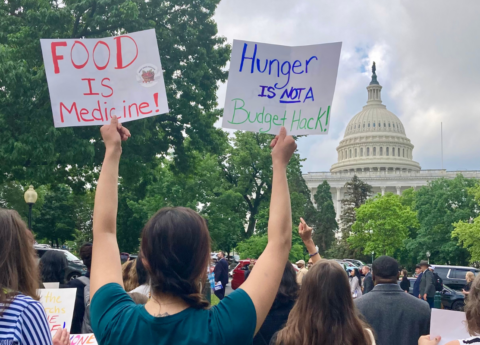We all want to live in a thriving community where everyone has the chance to succeed. The building blocks of such a community include a good education, safe neighborhoods, reliable roads and healthy people – and insurance coverage is foundational for ensuring we are all healthy. Thanks to the Medicaid expansion, more and more Kentuckians’ loved-ones and neighbors are able to take a stake in their own healthcare and all of us will benefit because of it.
In fact, if we’ve learned anything from the last two and a half years of the Medicaid expansion, it’s that people are able to engage in their healthcare exactly because they are covered in the first place. Here are some examples of how more Kentuckians are taking ownership of their healthcare because of the Medicaid expansion:
- Preventative screenings for conditions like colorectal cancer, cervical cancer, high cholesterol and diabetes through Medicaid have all doubled.
- Regular check-ups at the dentist have doubled.
- Tobacco use counseling and interventions have nearly tripled.
- People are getting more regular care for chronic illnesses like asthma, hypertension, and depression, and are less likely to skip taking prescribed medicine.
- The ER isn’t being used as a “usual source of care” as often.
- More people have a personal doctor and they’re going to annual check-ups more than before.
Already, according to an important new academic study, there’s been a 4.8 percent increase in low income adults who report they have “excellent health” in Kentucky and Arkansas, which expanded Medicaid, compared to Texas which did not. Not only are people taking the right actions to get healthier, they are reporting better health.
Despite these gains, the Bevin administration is proposing to erect barriers to Medicaid coverage that will make it harder for such progress to continue. Past experiments show premiums, lockout periods and other barriers like those included in the administration’s plan result in loss of coverage – the essential ingredient needed to improve health. The administration’s proposal admits at least 86,000 fewer Kentuckians will be covered if the plan is implemented.
The proposal incorrectly assumes that if you make it harder for people to get Medicaid they will somehow get good jobs that will allow them to obtain employer-sponsored health insurance. Such a claim is at odds with the reality of the economy today.
For the last few decades, wages have been stagnant for many Kentucky workers, good jobs are too scarce and employers are less often providing needed benefits. In 1980, 70 percent of Kentucky workers were covered through employer-sponsored health plans; today that has fallen to 56 percent. That’s why most of those covered by the Medicaid expansion are working now — they just work in low-wage jobs, most commonly in restaurants, construction and retail stores.
Even if more employers were offering health coverage, many parts of the state face a shortage of jobs because of fallout from the Great Recession or other transition in the economy. Only 28 of Kentucky’s 120 counties have more jobs now than they did before the Great Recession. Besides facing a scarcity of jobs, other Kentuckians are caregivers for children and family members or face barriers to the labor force because of factors such as a lack of training, an inability to afford child care or a prohibitive criminal record.
One bright spot in our economy the last couple of years has been the healthcare sector — thanks in part in the federal dollars coming to Kentucky because of Medicaid expansion. In the last 2 years, the state has added 9,000 jobs in hospitals and outpatient care facilities.
If sustainability is truly a concern for Kentucky, then we should carefully consider what moving backward on our healthcare would mean: sicker people, fewer jobs and less money flowing into the state. The Medicaid expansion is already saving us money, but there are ways to make it work even better in the long-run both for those it covers, and for the state budget. Options include unfreezing the hospital provider tax that has been capped at 2006 levels despite the billions more dollars in revenue hospitals are receiving, and moving Medicaid reimbursements toward a value-based healthcare delivery model that focuses more on people getting healthy rather than on the number treatments they receive.
We all do better when we all do better. Our Commonwealth will thrive when building blocks like good health are in place. So far the Medicaid expansion has us pointed in the right direction, and our investment is paying off. The administration should build on this progress and not move the state backward in the final proposal they send to Washington.
This column originally ran in the Courier-Journal on Aug. 8, 2016. It ran in the Lexington Herald-Leader on Aug. 13, 2016.

